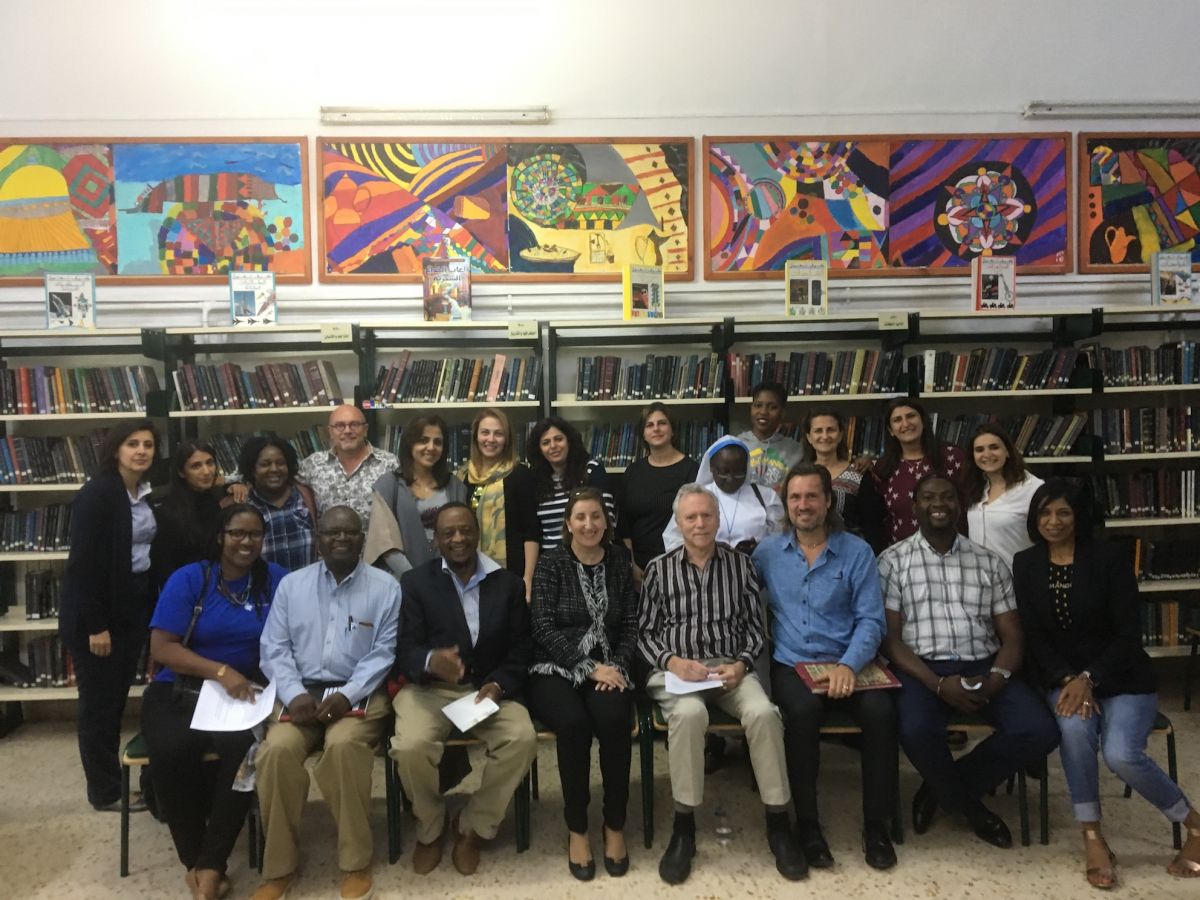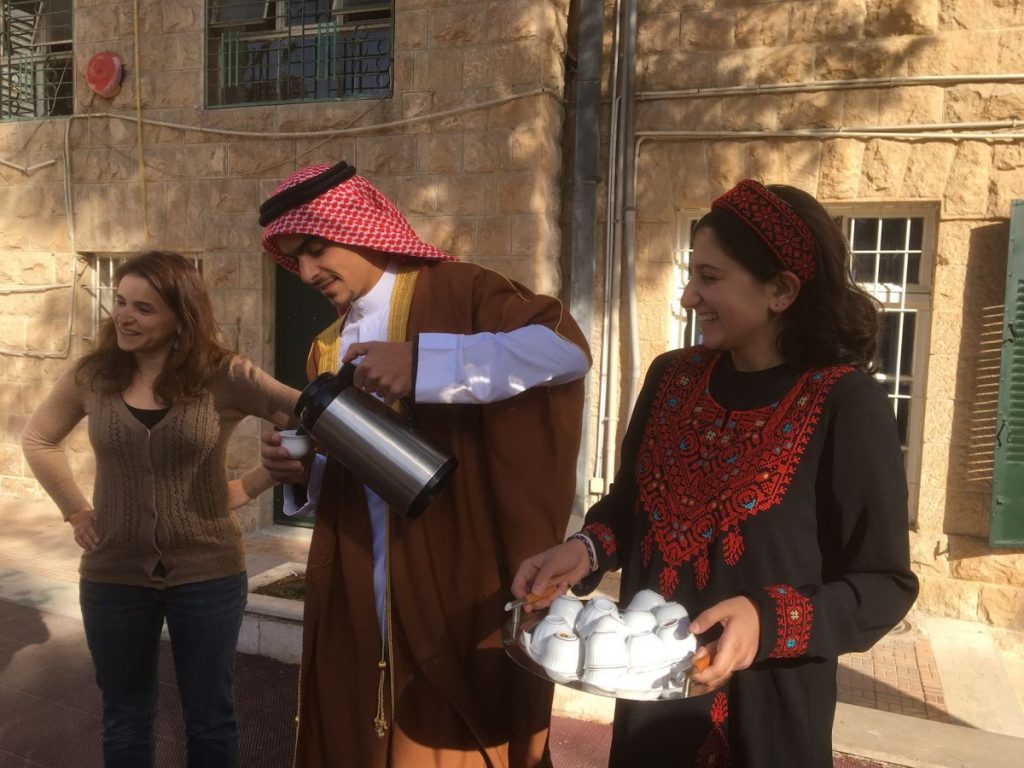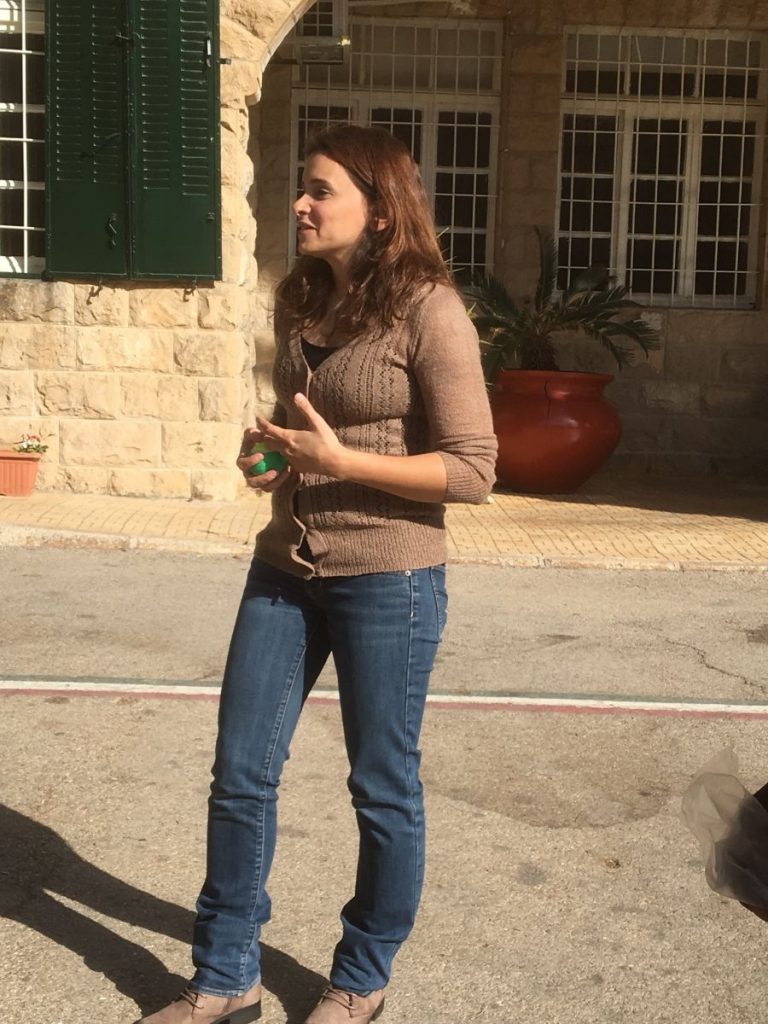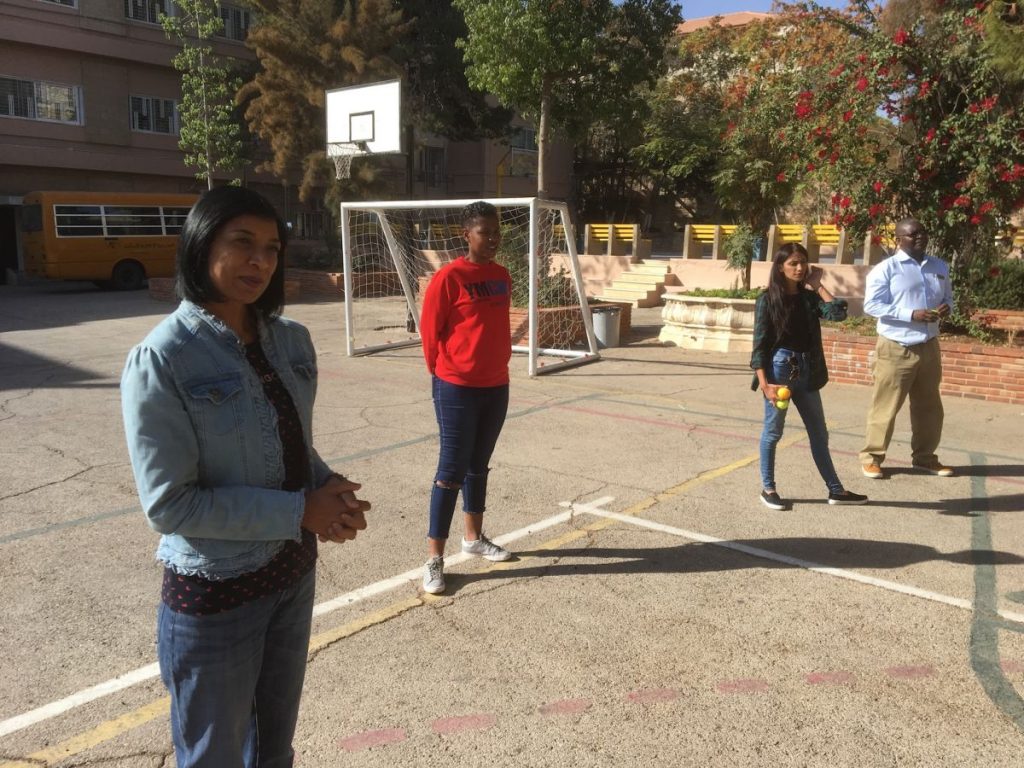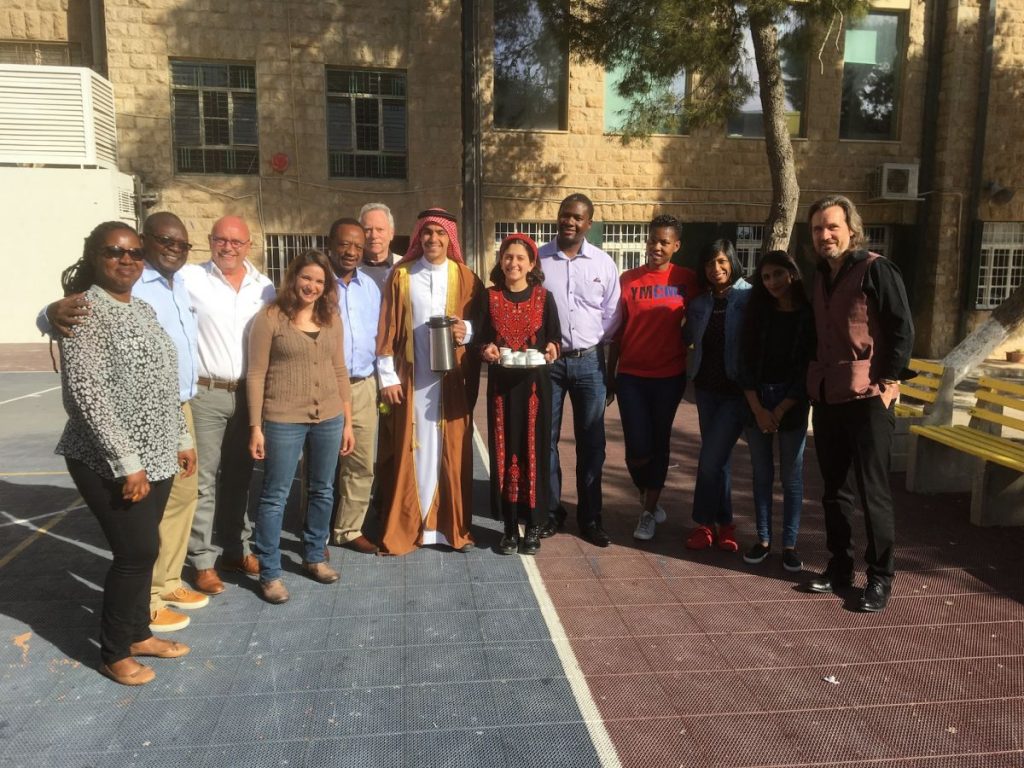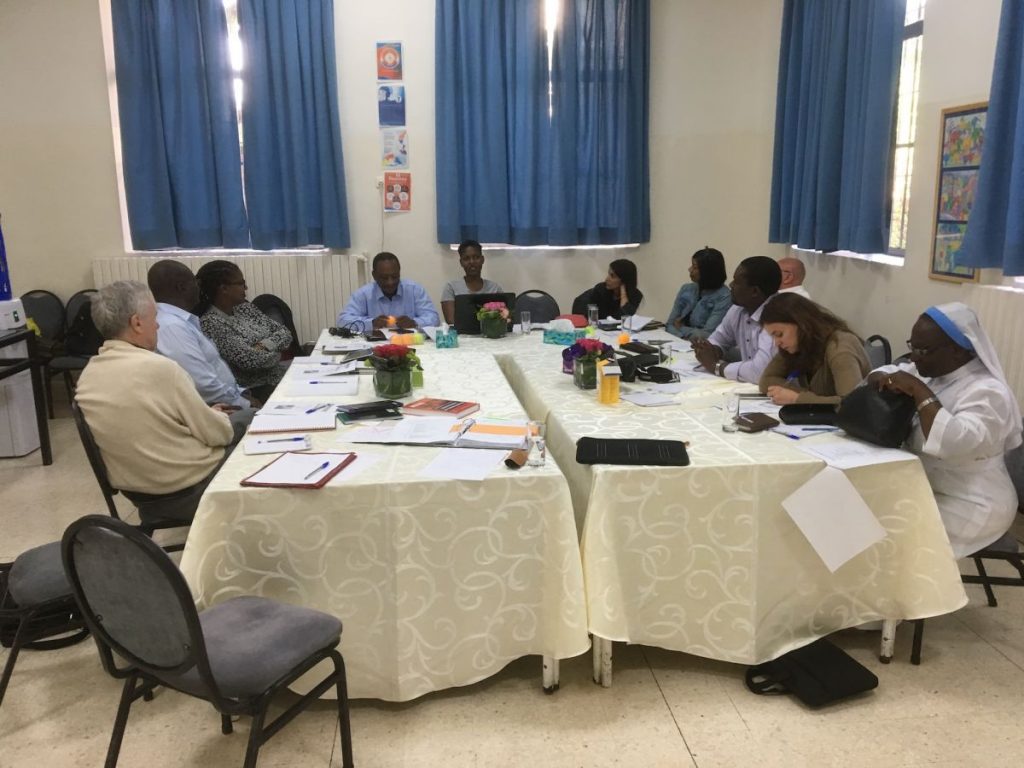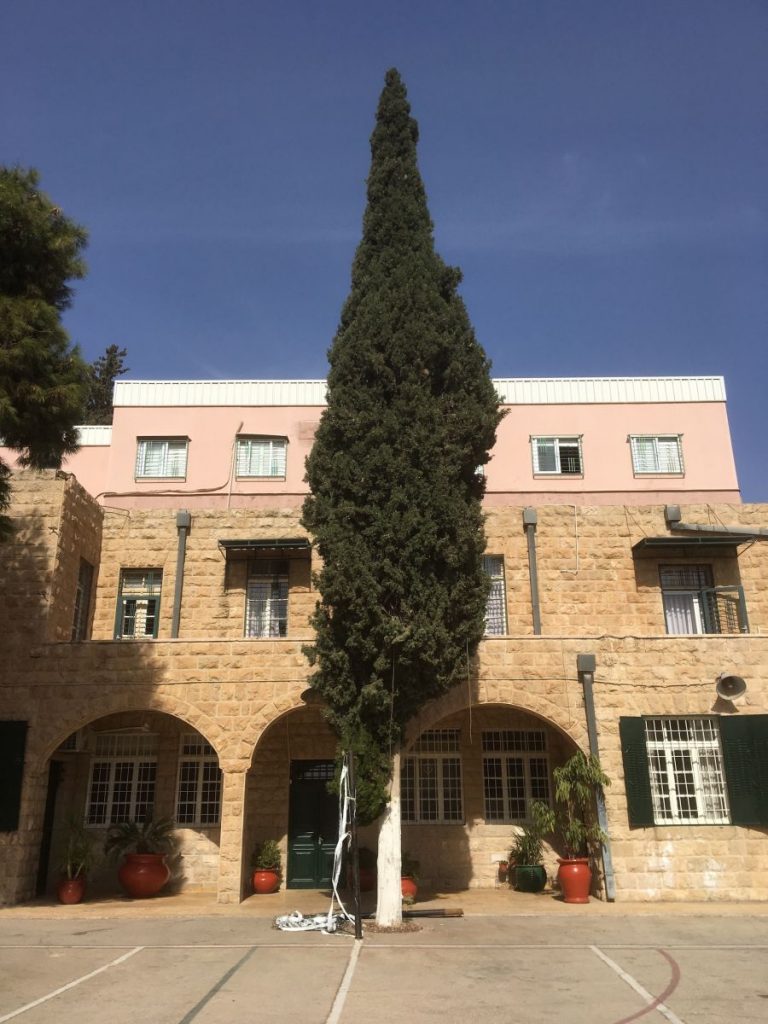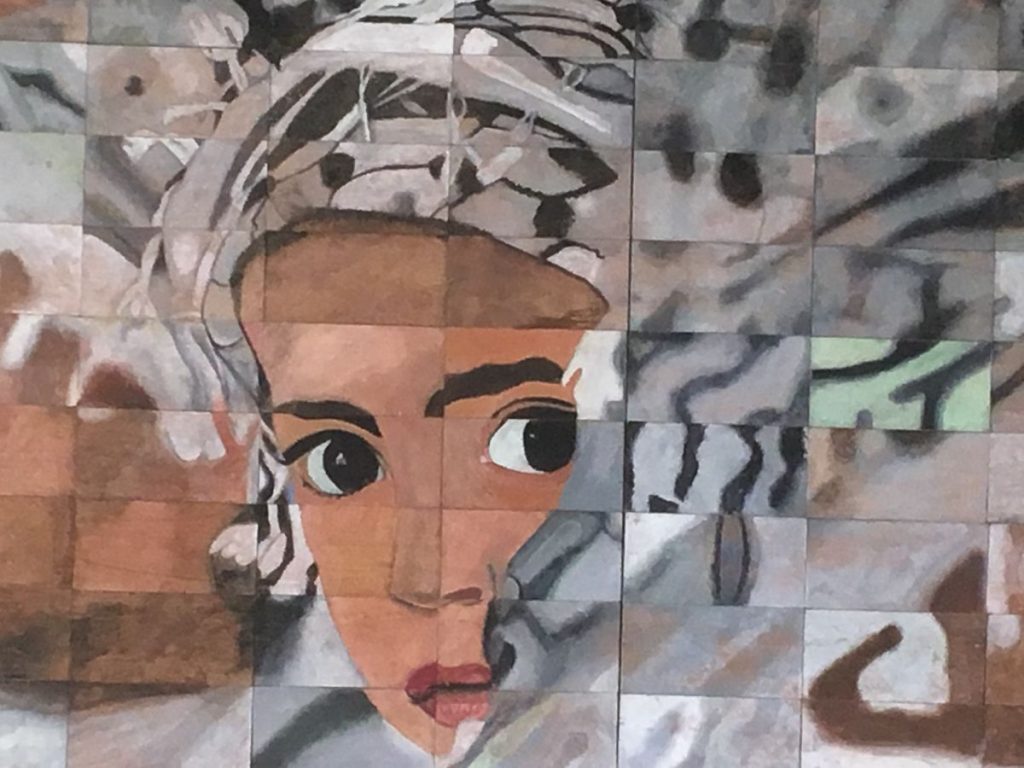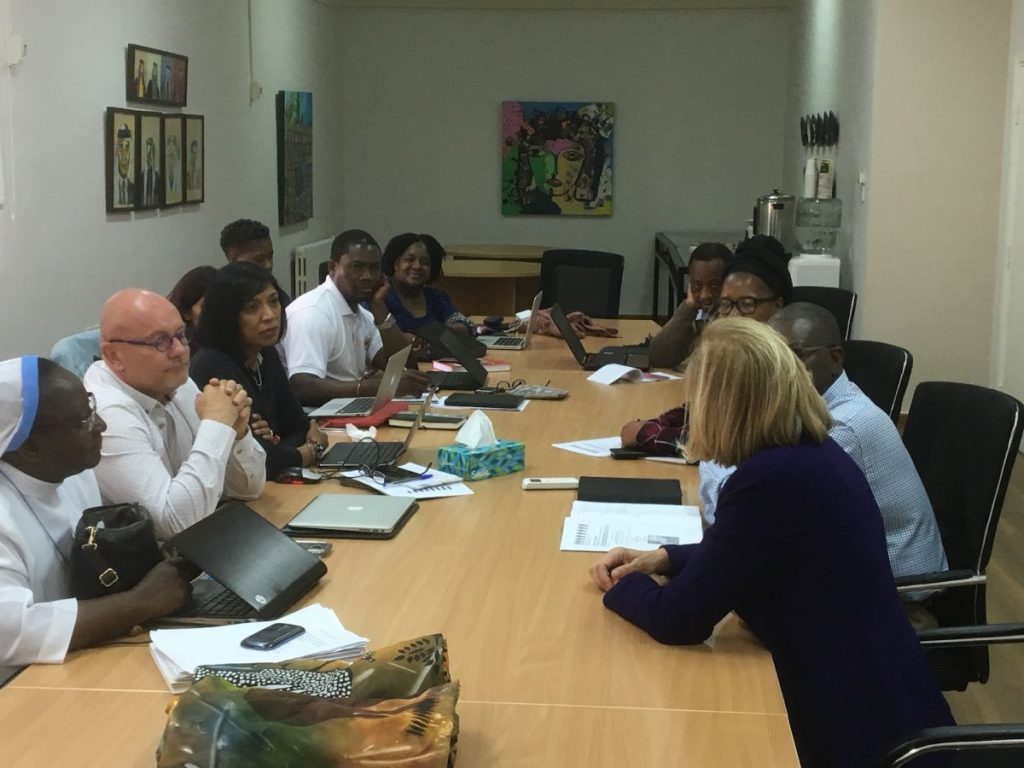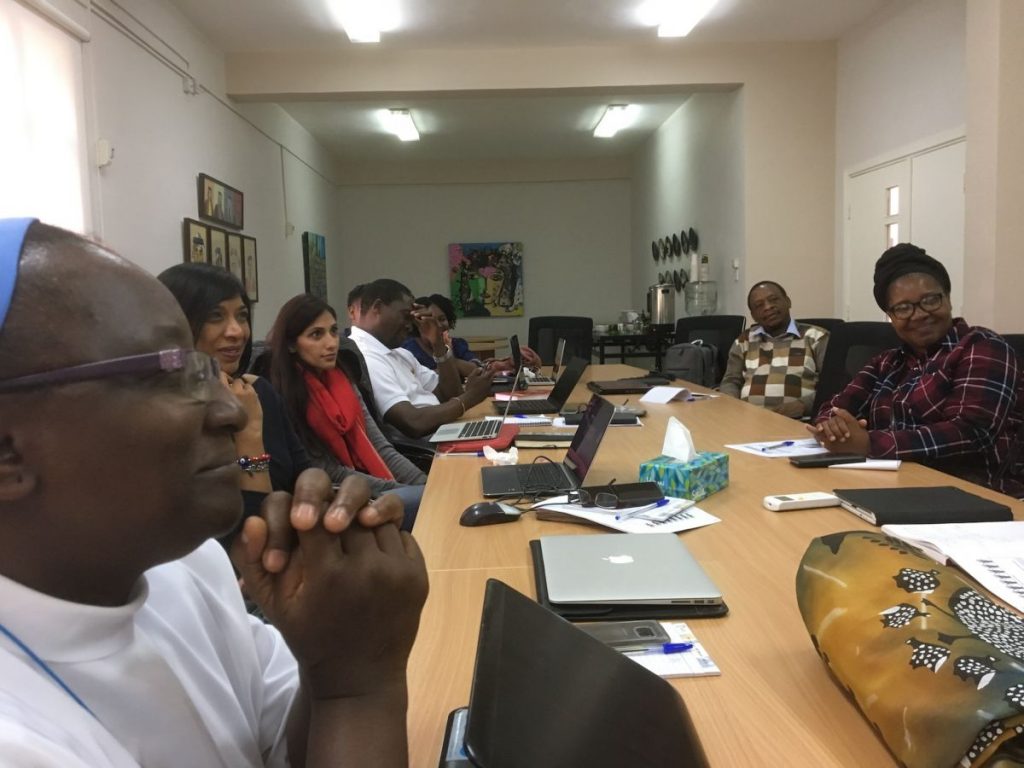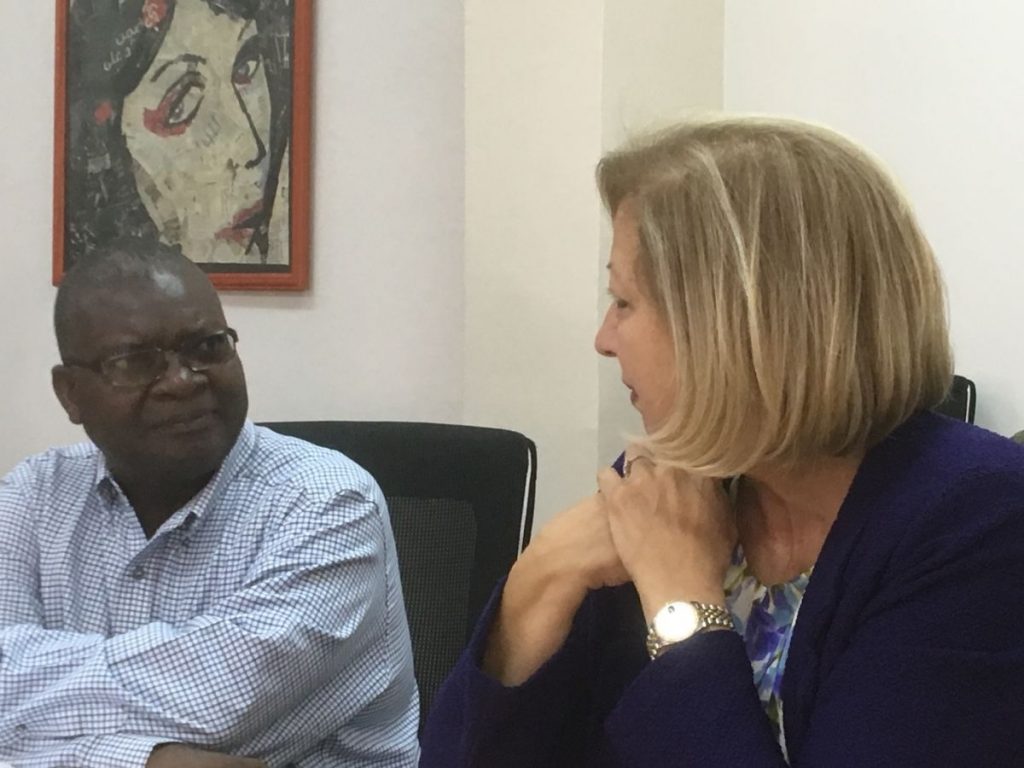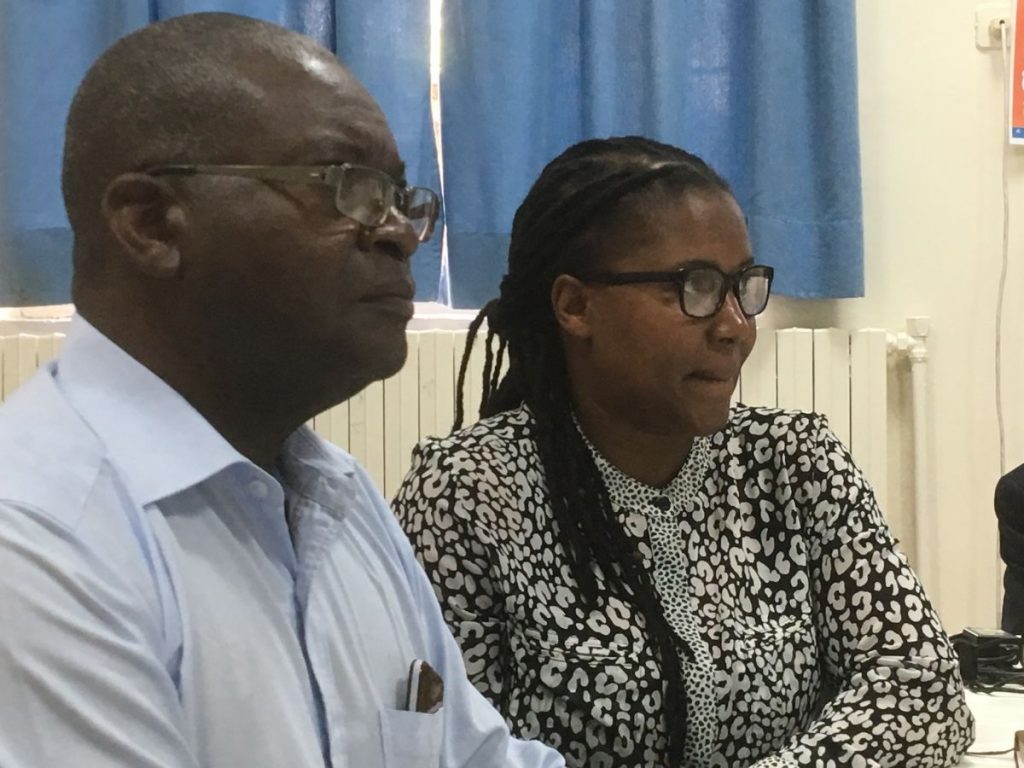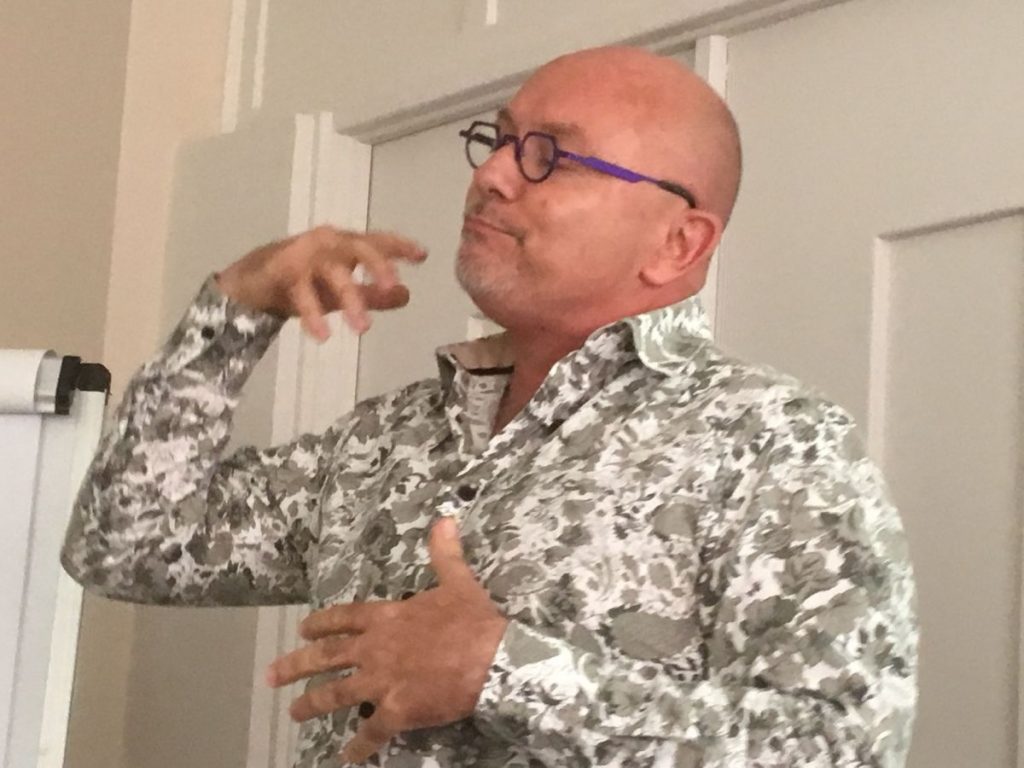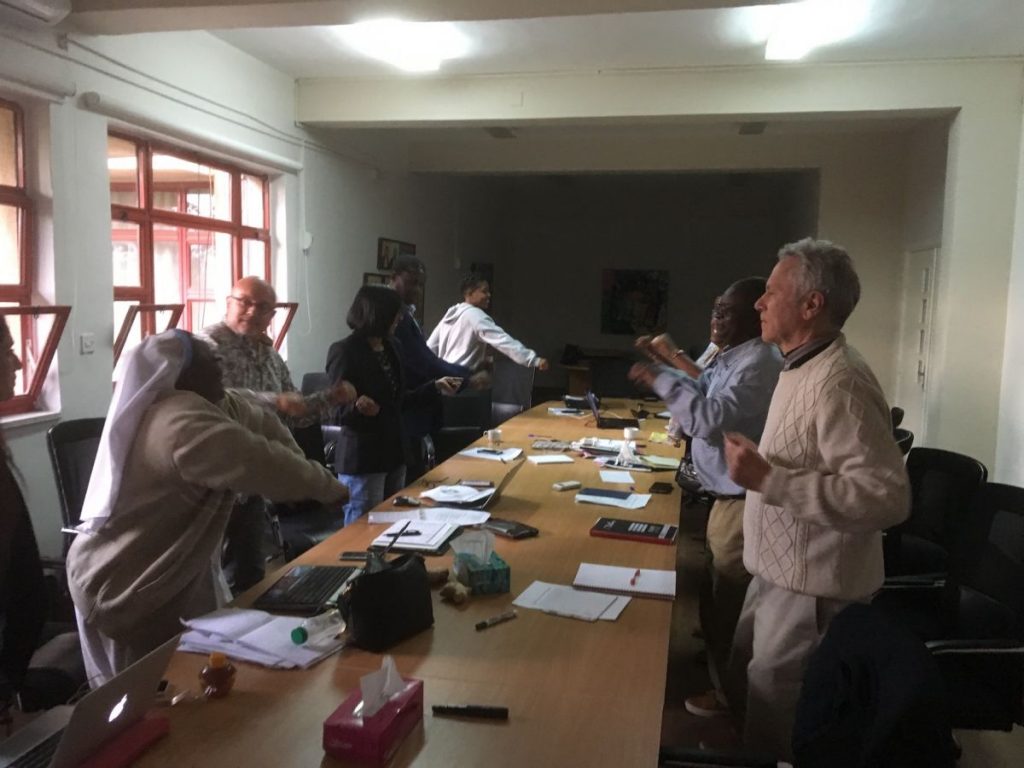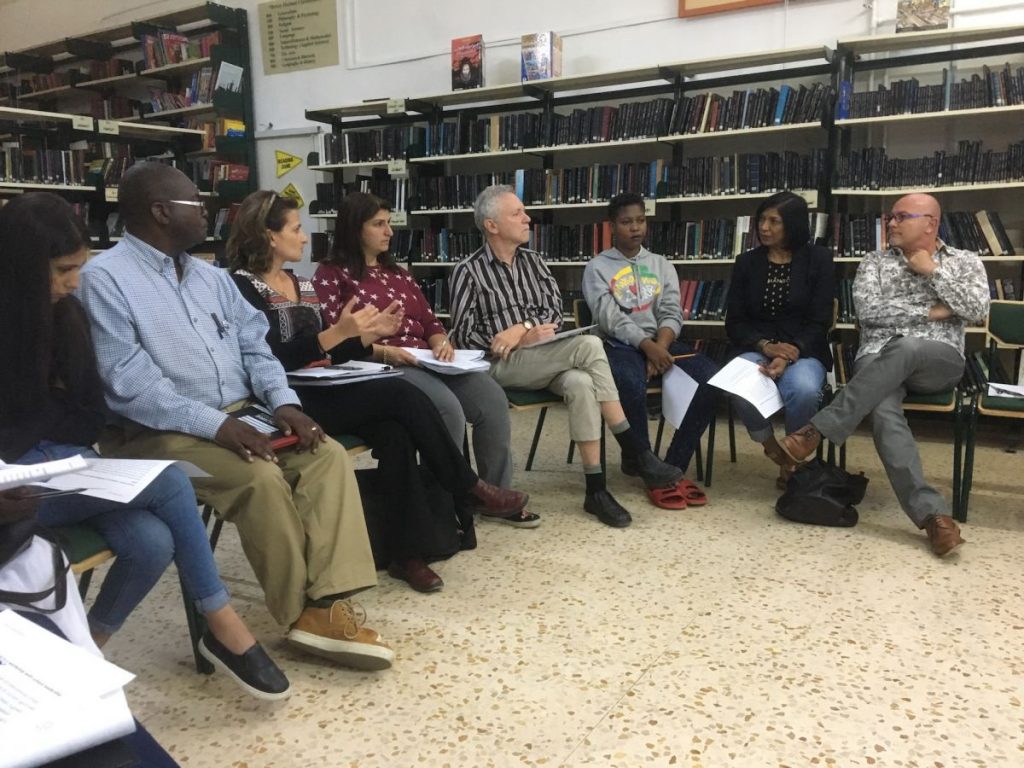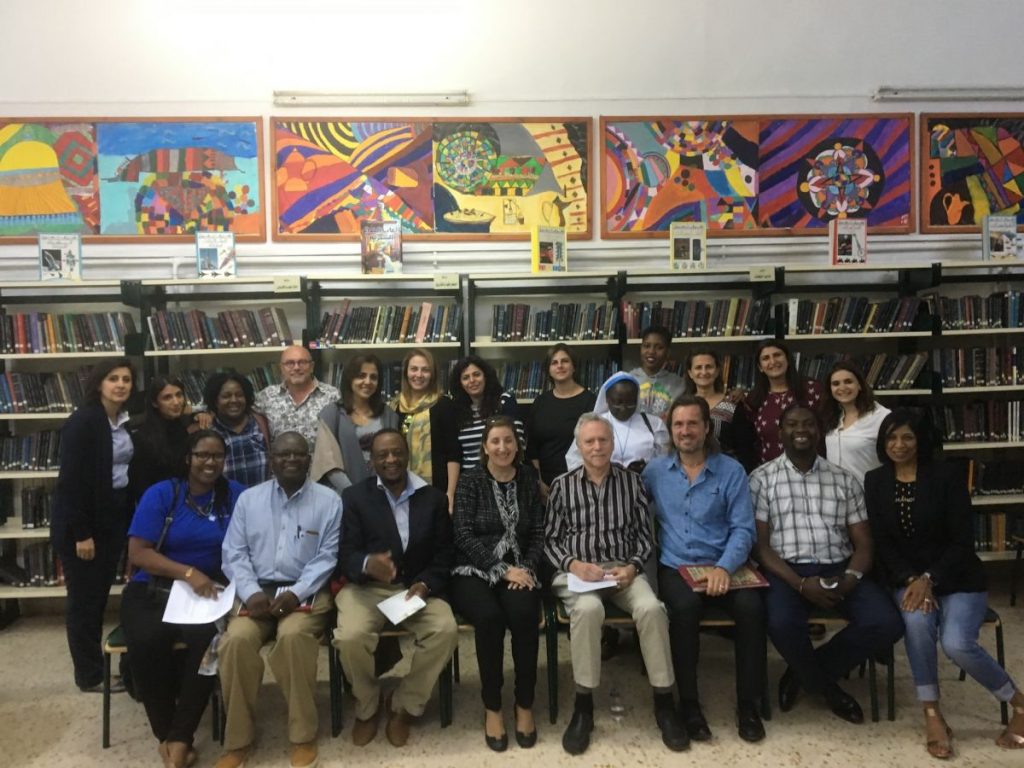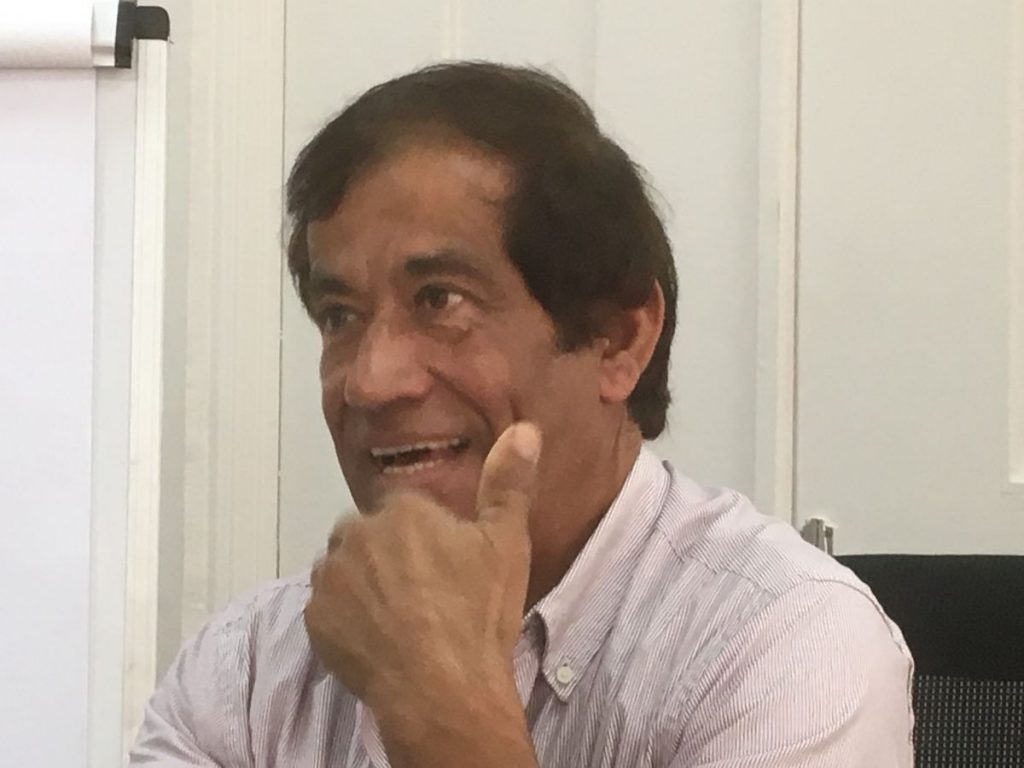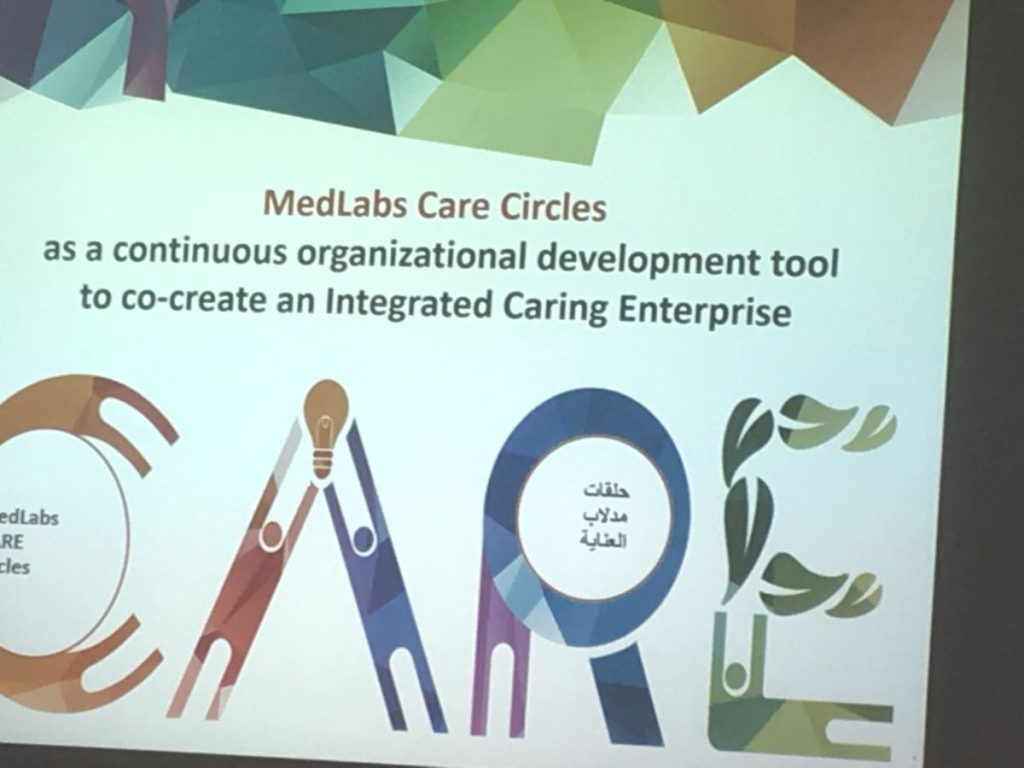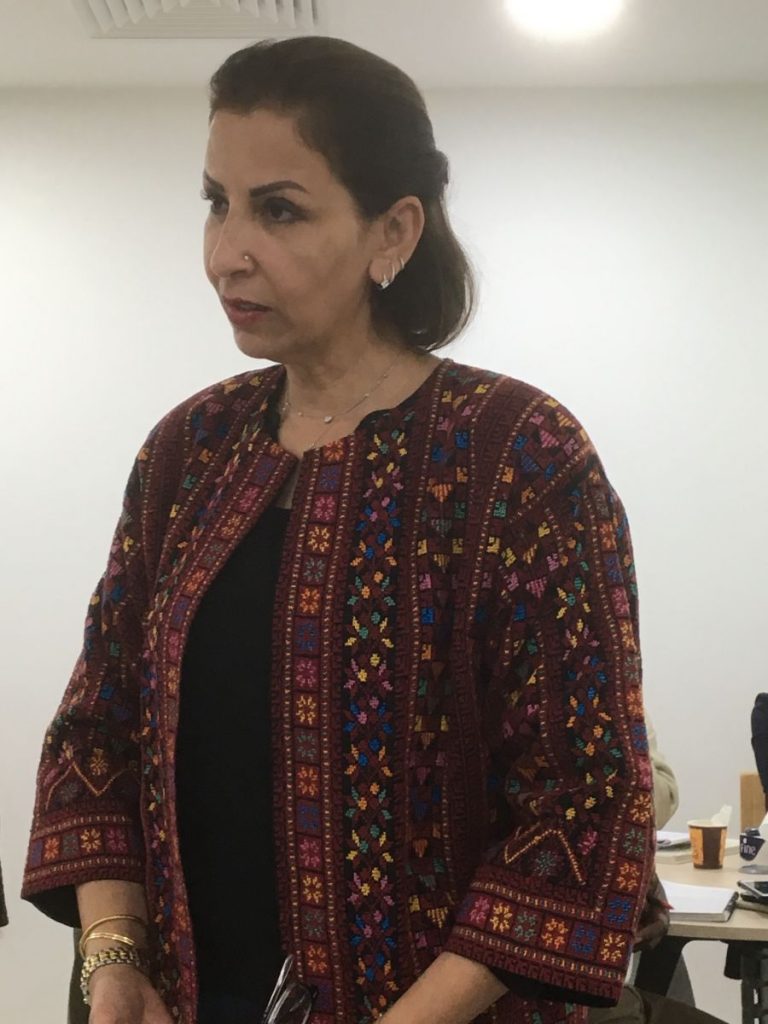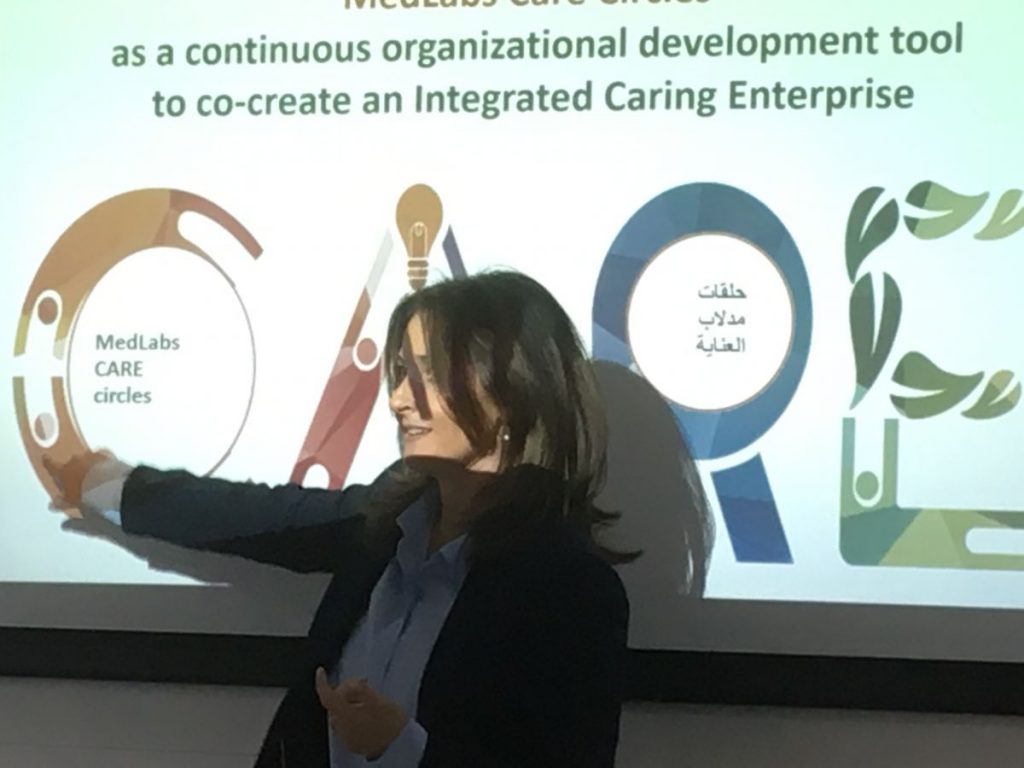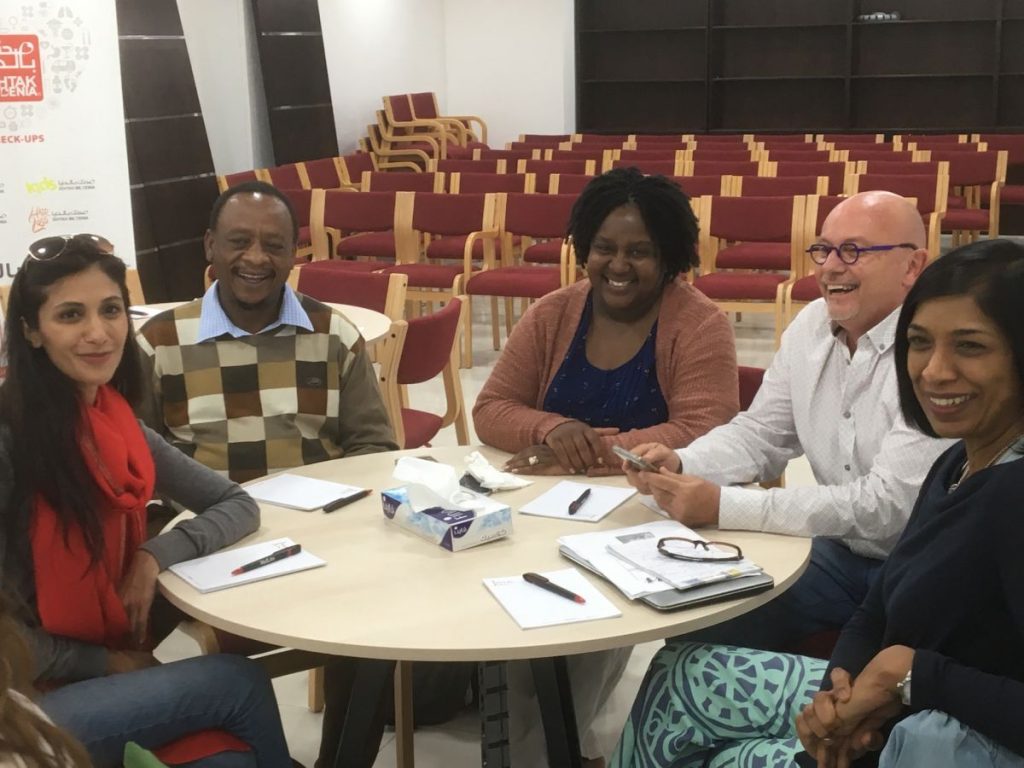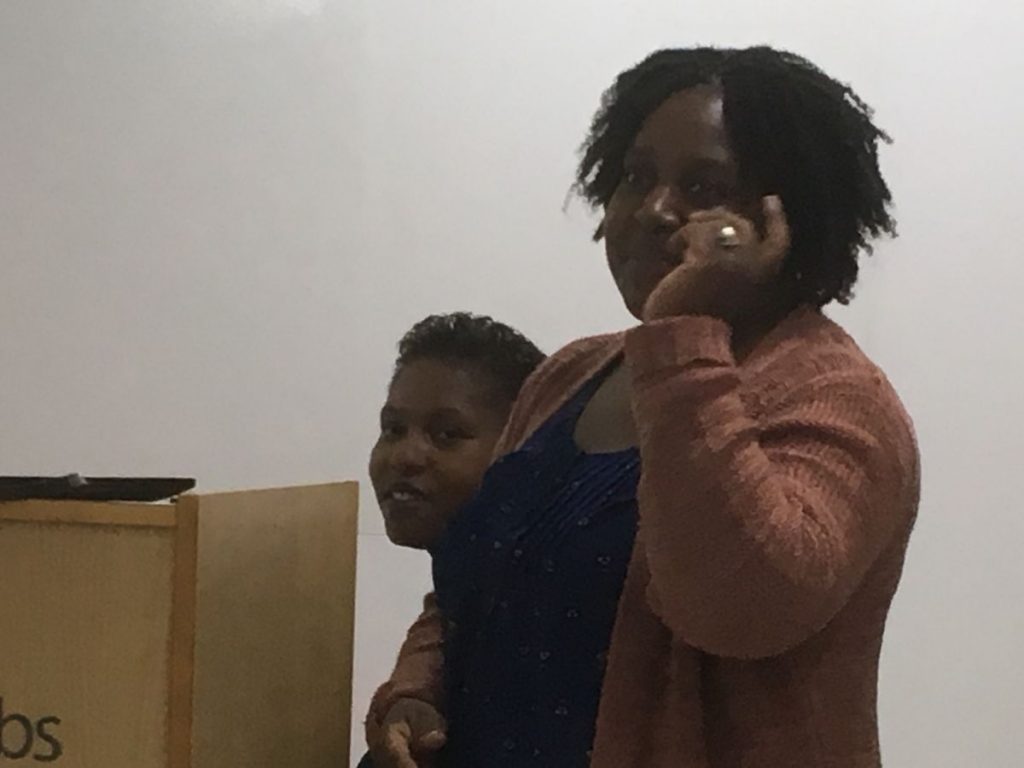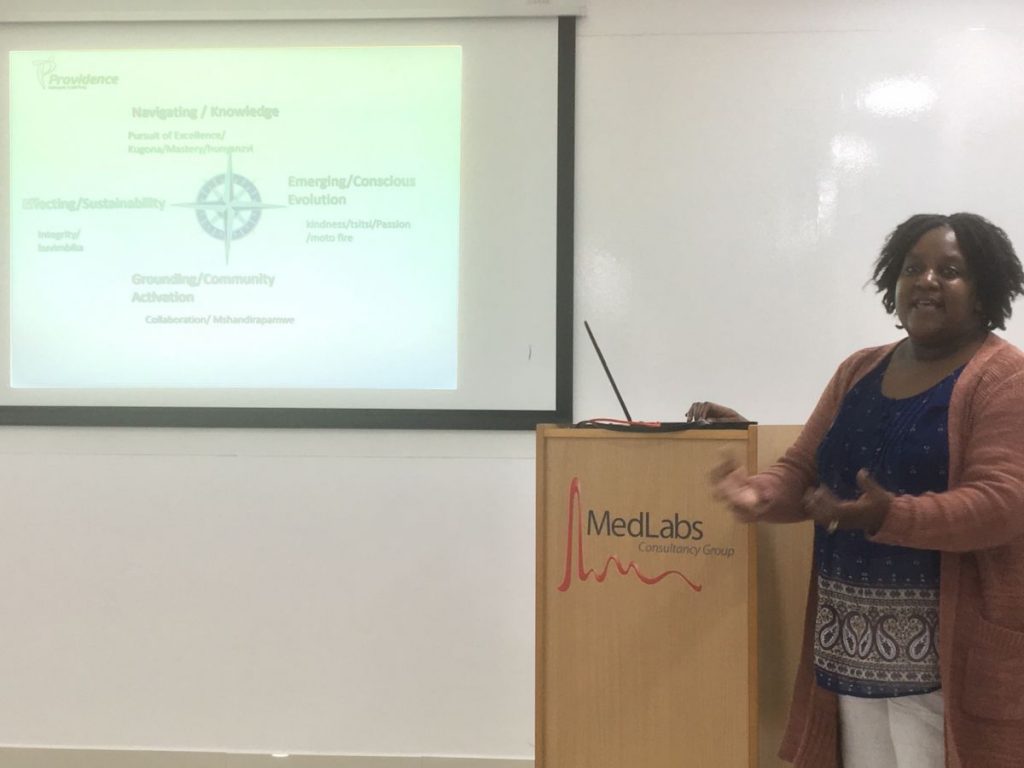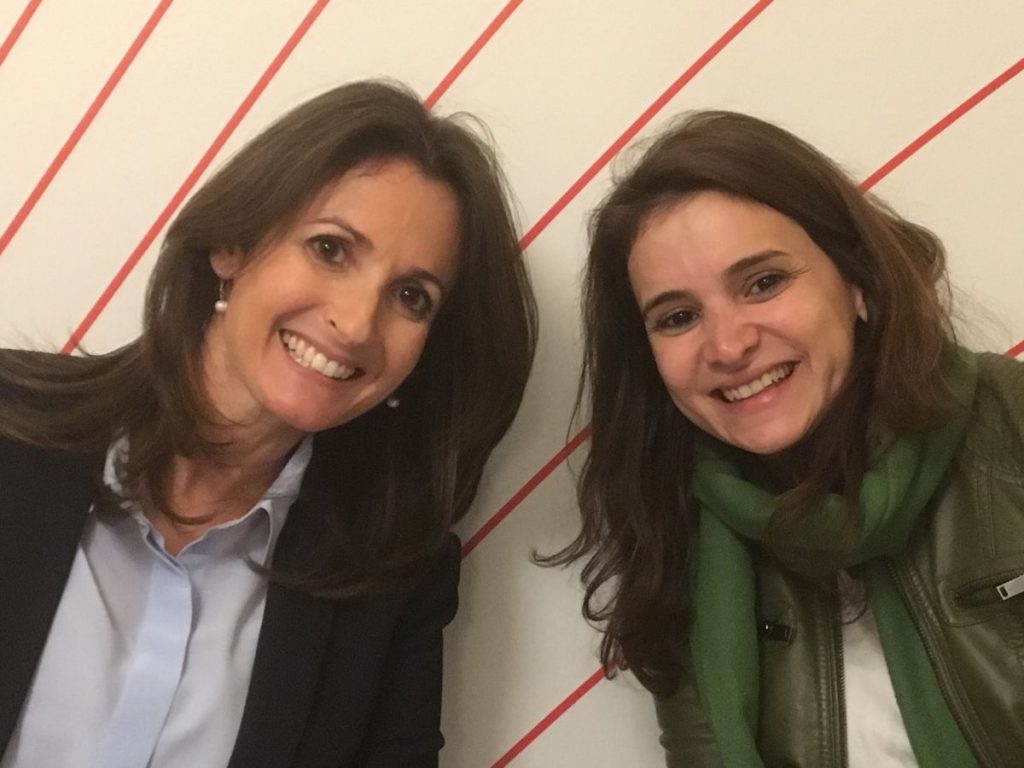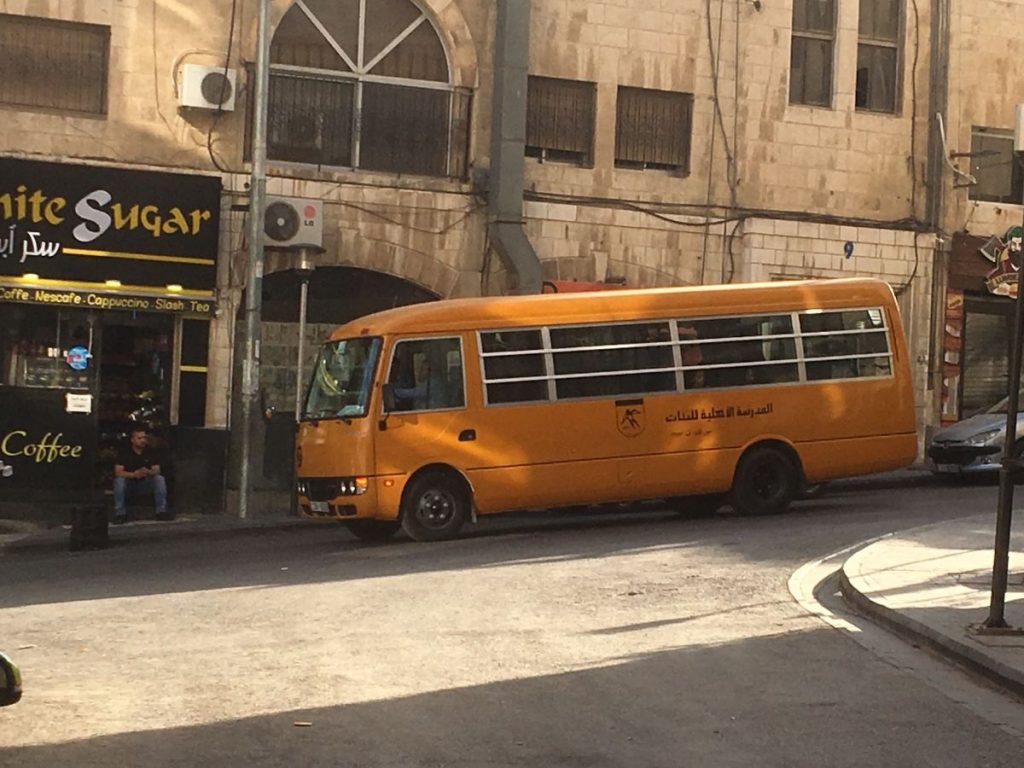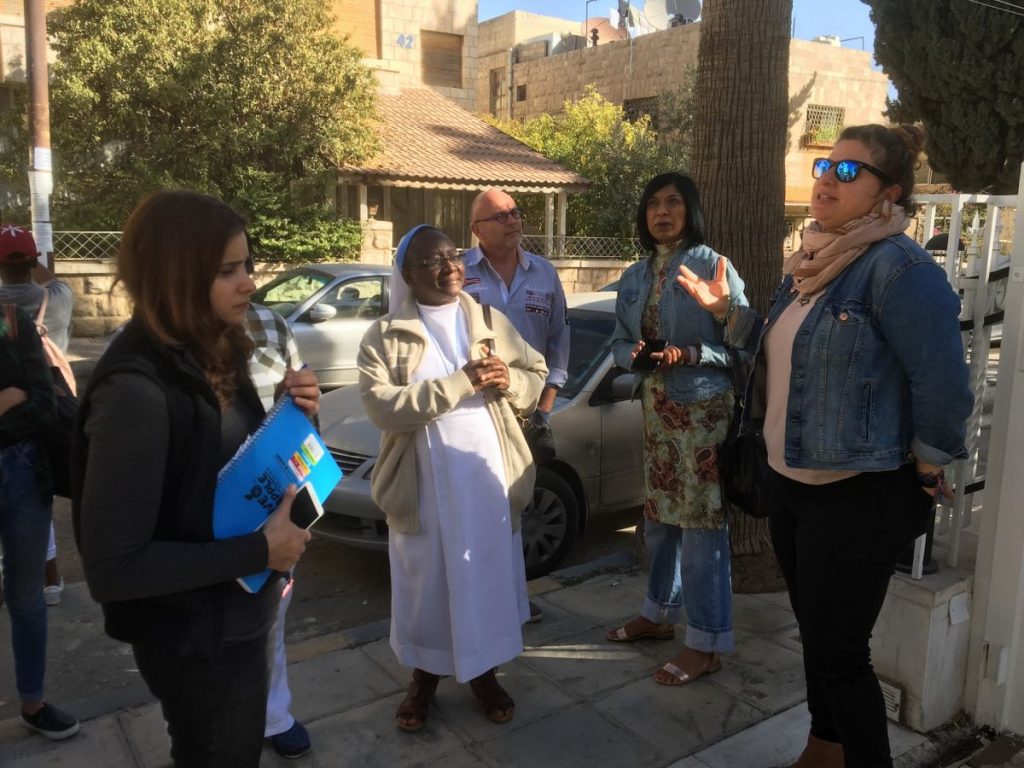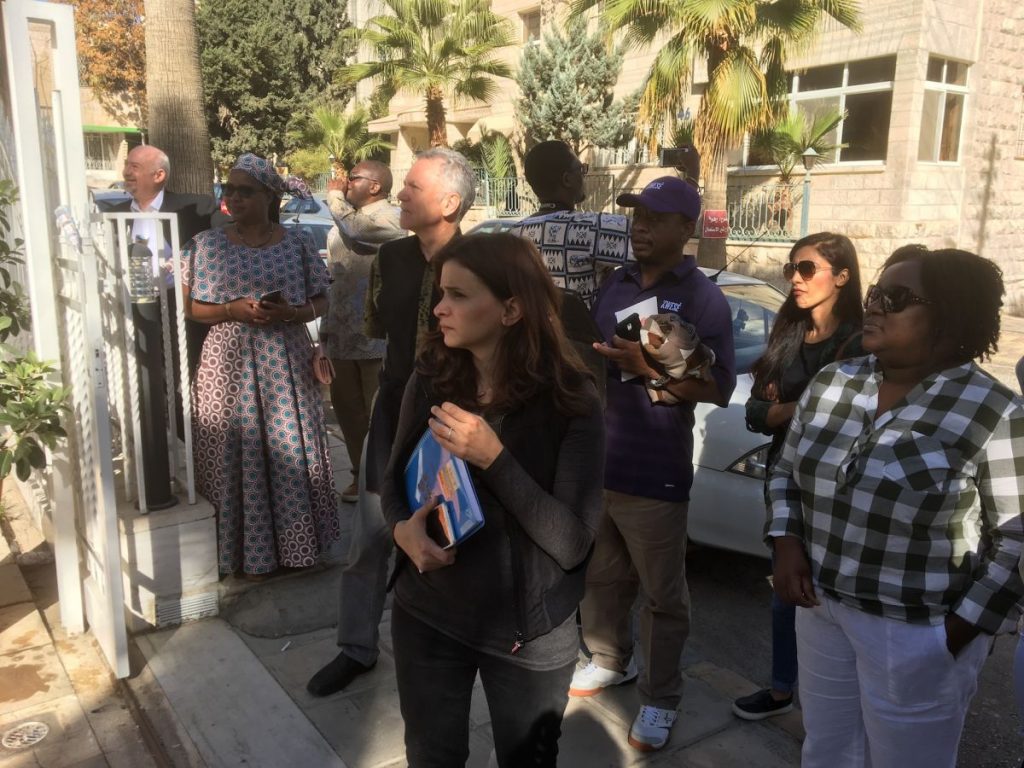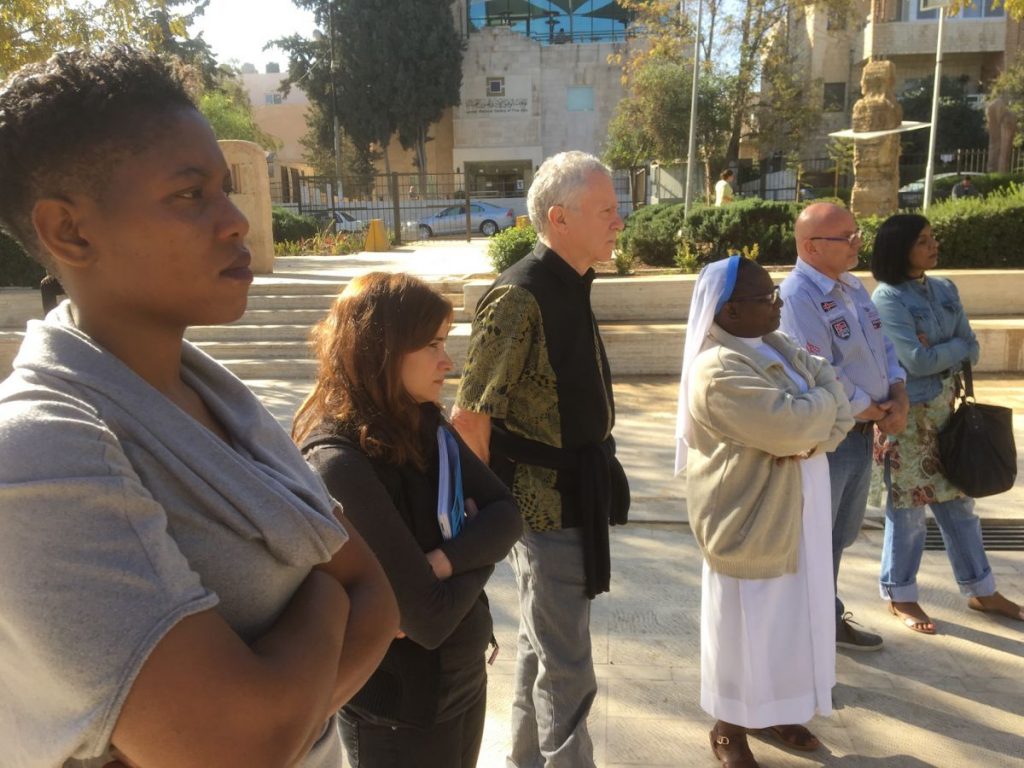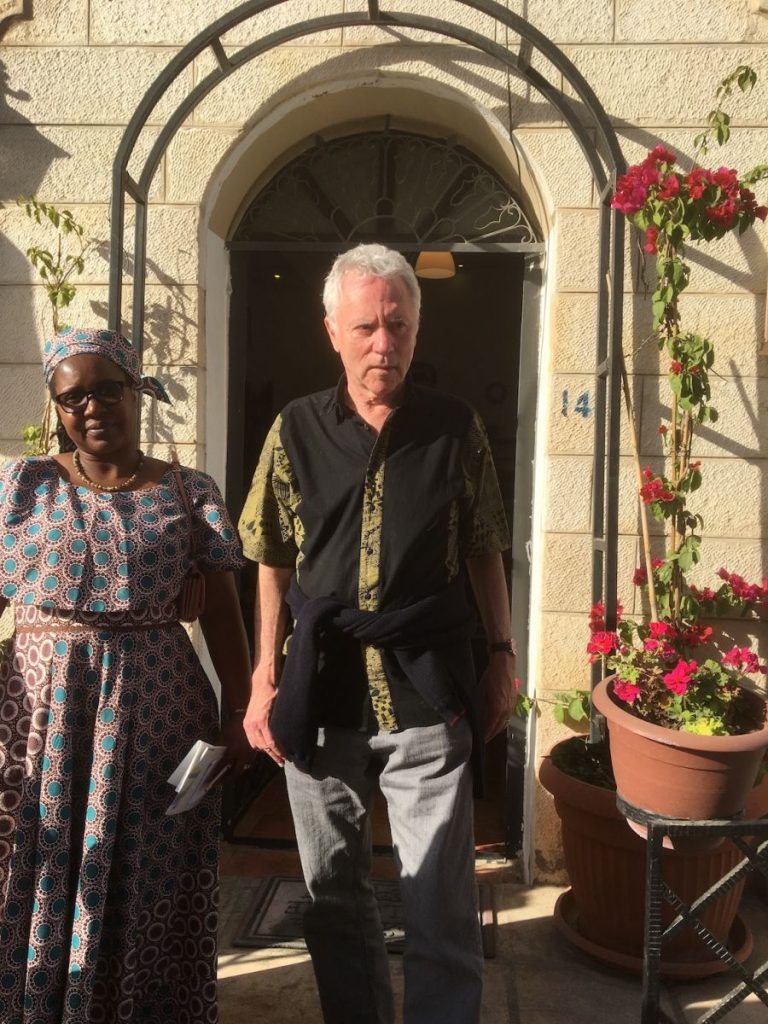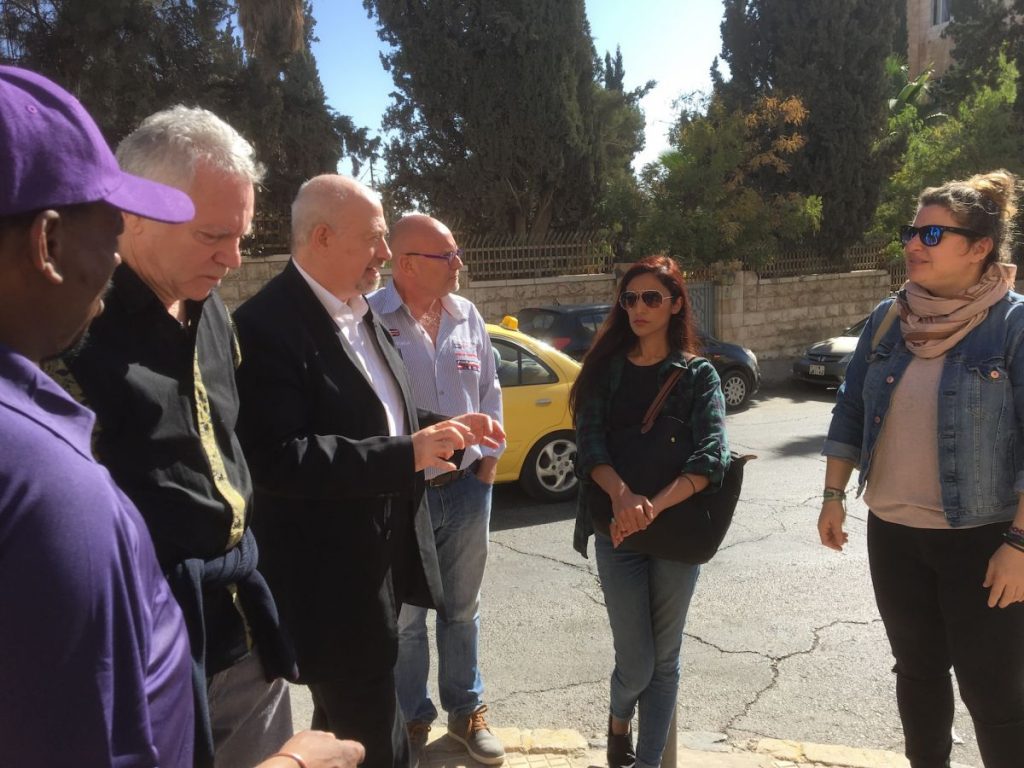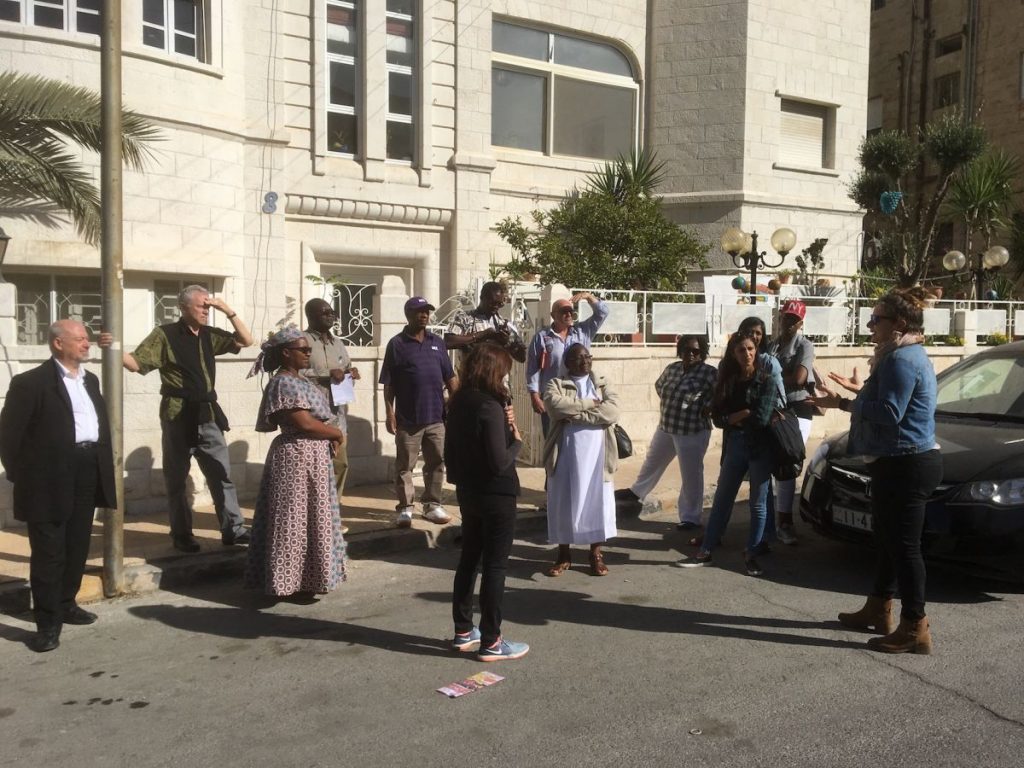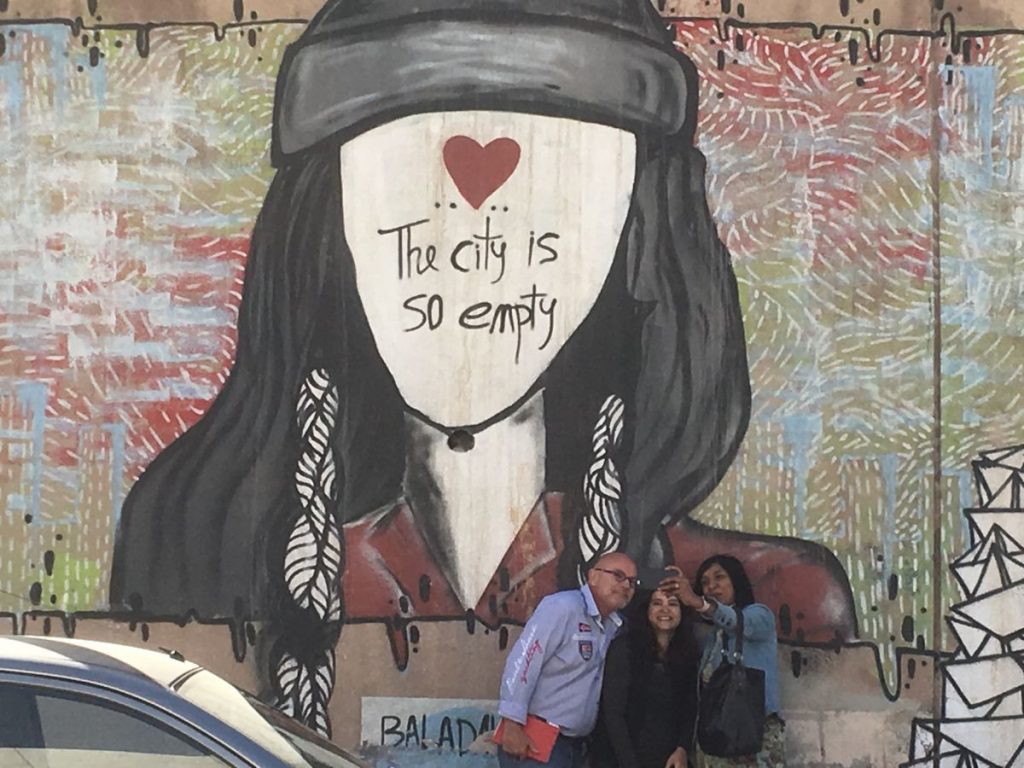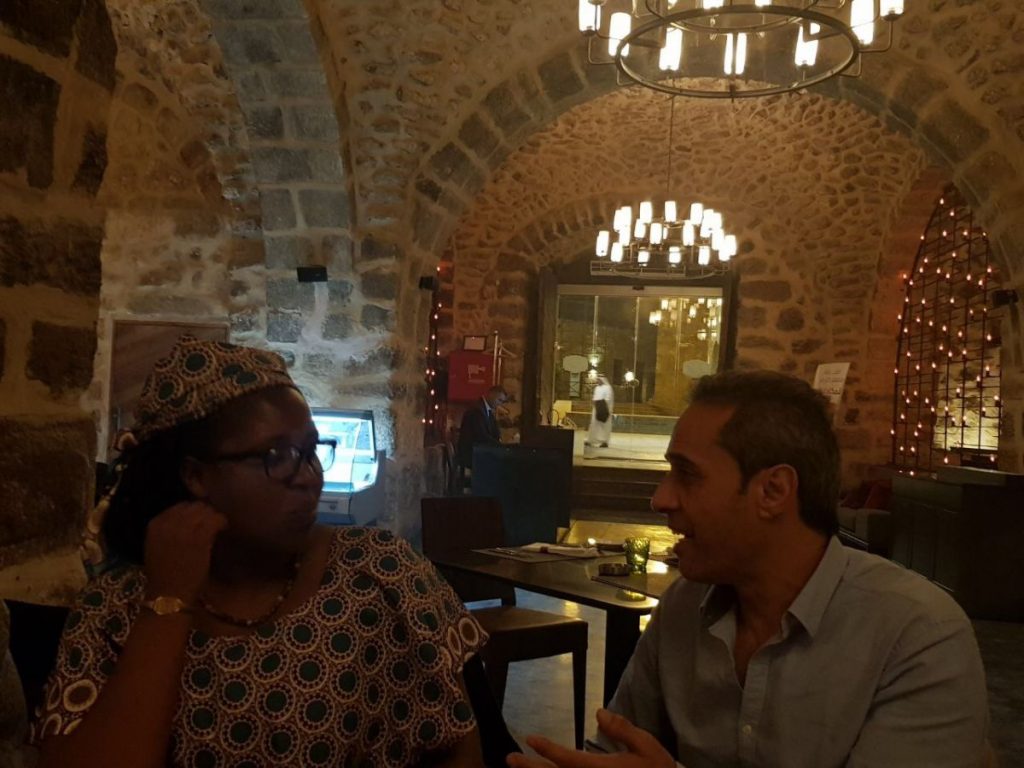Beyond a PhD Module: Experiencing Integral Realities in Jordan
14 November 2017: A group of 13 Trans4m Da Vinci PhD participants met in Amman for a highly productive interaction between Integral Theory and Practice
Participants of our PhD Program came from South Africa, Zimbabwe, Nigeria, Jordan, UK and France. The module was hosted by ASG Ahliyyah School for Girls (ASG) and Bishop’s School for Boys, two of the most inspiring secondary schools in Jordan. Both schools currently undertake a transformative process to become an Integral Co-Ed School. This process is stewarded by the schools’ superintendent H.E. Haifa Najjar and co-led by Trans4m Fellow Laila Abdul-Majeed, together with others.
The theoretical focus of this module was the Integral Enterprise, Integral Economics and Integral Education. In the course of the four intensive days, the group was exposed to the educational model and transformative process of the two schools, as well as invited to join a “Roundtable for Holistic Education for Societal Transformation” following the module. Thereby, participants received an in-depth exposure to Integral Education.
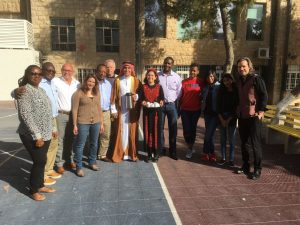 Furthermore, while Integral Enterprise was discussed in theory, it was also experienced in practice through a half day visit at MedLabs Jordan. Medlabs is in the process of becoming an Integral Enterprise, a process that is spearheaded by Trans4m Fellow Manar Al Nimer and catalysed by Trans4m. Medlabs also shared with us their approach to CARE-ing, including the development of Care Circles, which seemed to emerge naturally out of their “Marketing to Community Development” Department as well as their Quality Department, as perhaps an evolution of Quality Circles. This exposure was particular rich as a number of the PhD participants pursue, in their own context, the road to develop an Integral Enterprise, such as Phiri Zongololo, Chipo Ndudzo and Daud Taranhike from Zimbabwe. The local understanding was further deepened by a talk of the Jordanian management professor Adel Al Rasheed from Yarmouk University, who recently published a book in Arabic Language, showcasing integral transformation cases among Jordanian enterprises.
Furthermore, while Integral Enterprise was discussed in theory, it was also experienced in practice through a half day visit at MedLabs Jordan. Medlabs is in the process of becoming an Integral Enterprise, a process that is spearheaded by Trans4m Fellow Manar Al Nimer and catalysed by Trans4m. Medlabs also shared with us their approach to CARE-ing, including the development of Care Circles, which seemed to emerge naturally out of their “Marketing to Community Development” Department as well as their Quality Department, as perhaps an evolution of Quality Circles. This exposure was particular rich as a number of the PhD participants pursue, in their own context, the road to develop an Integral Enterprise, such as Phiri Zongololo, Chipo Ndudzo and Daud Taranhike from Zimbabwe. The local understanding was further deepened by a talk of the Jordanian management professor Adel Al Rasheed from Yarmouk University, who recently published a book in Arabic Language, showcasing integral transformation cases among Jordanian enterprises.
Building up these Integral Enterprise impulses towards a joint initiative for an Integral Economy was the discussion focus of the third day of the module. While participants were introduced to the theory of an integral economy, the Middle Eastern showcase of the autonomous Region of Rojava in Northern Syria was discussed, as well as the Integral Green Slovenia case from Trans4m’s own experience. Of particular relevance on that day was the fact that Zimbabwe’s then still president Mugabe had been put under house arrest, which led to his subsequent resignation and the beginning of a new era for Zimbabwe. Anticipating such a potential for economic and societal renewal, the group, together with the Zimbabwean participants, actively began to envision their collaboration to contribute to an Integral Economy in Zimbabwe, thereby also taking our previous Integral Green Zimbabwe work forward. Out of this process, and building on Daud Taranhike’s focus on nhaka (heritage and legacy) for his own enterprise, the idea was born of nhaka-nomics as a potentially integral economic orientation for the new Zimbabwe.
On the last day of the module, new Trans4m Fellow, Amman based Raghda Butros guided the group on a culturally and socially charged neighbourhood walk, that culminated in a visit of the cultural center Dharat al Funun. In its library, Trans4m Fellow Tony Bradley exposed participants to his research on quaternity archetypes in the bible, which helped to ground the “integral perspective” in the Middle East, as the birthplace of all three religions of the book.
Back at BSA, the module ended with each participant mapping out his/her ongoing research-to-innovation journey, Phiri Zongololo in particular highlighting the rich integral feast that they had digested along the way.
All of these combined and interwoven experiences made this anything but a “typical module”. Rather, the entire group was exposed to an active “integral field”, and participated and contributed to its evolution. The “module” then rather became a catalyst for co-creation between participants and the integral Jordanian field, as well as between participants and their organisations themselves.
It thereby also became an articulation of how Trans4m seeks to further expand the transformative potential that lies in our re-configuration of a PhD program. More to come …
